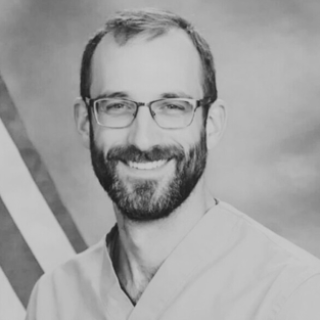Advertisement
Are they or aren’t they investigating Governor Voinovich’s administration? It’s become a semantics debate. Voinovich campaign contributions, yes; administration, no.
The July issue of the Ohio Observer originally reported that the FBI was investigating charges of contract steering in the Voinovich administration. Then a week ago Sunday, the Cincinnati Enquirer confirmed this and filled in many details surrounding the preliminary investigation. Then the Cleveland Plain Dealer had the feds denying it. But the Enquirer stood by its story. And well they should, since they had, in newspaper biz parlance, “back-up”-usually meaning “we taped it, you idiots.” Plus, the Enquirer had confirmation from multiple sources: two in the FBI and one in the Justice Department.
Yes, there’s a very thin line, indeed, between an investigation of Voinovich campaign contributions and his administration. One that could easily be crossed this election year. Ohio Rep. John Boehner, who regularly publishes the ongoing Washington Union Boss Watch, recently alleged “close links” between a labor leader and both the Clintons and organized crime. Shocking, eh? The House Republicans are planning to hold hearings.
I have a few tips of what to look into while they’re investigating organized labor, politicians and organized crime. The Free Press has learned that the original state investigation file contained allegations linking organized crime to our governor’s growing scandal, which is the basis of the federal probe.
Maybe they could ask Voinovich, then mayor of Cleveland, about his presence at the funeral of Teamster Vice-President Bill “Plug” Presser on July 21, 1981. “Plug” was a protege of Jimmy Hoffa and a thrice-convicted labor racketeer. Presser also aided the Nixon White House in compiling the infamous Enemies List and before his death managed to pass his vice-presidency on to his son, Jackie.
Or they could ask what George recalls about the funeral at the Berkowitz-Kumin Memorial Chapel on July 12, 1988 when he gave the eulogy for Jackie Presser. Jackie Presser rose to be Teamster president while simultaneously working for the Mafia and the FBI. Presser’s rise from “car thief to a White House dinner guest” is well-documented in James Neff’s Mobbed Up. “He was a man who loved his fellow man. He made a difference in my life. I will miss him and pray for him,” eulogized Voinovich.
Maybe they could look into the guv’s attempt to appoint ex-loan shark and Mafia associate Carmen Parise to Ohio’s Turnpike Commission. Certain other members of the commission and their activities bear further scrutiny. By the way, it sure is nice that, despite federal advice that it was unnecessary, the state is expanding the turnpike from three to four lanes east and west. Stuff like that in other states is often linked to contract steering and money laundering, but not in Ohio.
House members and federal investigators could look at where small-time player T.G. Banks, holder of the majority of the state’s unbid minority construction management contracts, got the money- big money-to buy Target Construction in 1990. The down-on-its-luck company still held $53 million or so in building contracts, according to the Columbus Dispatch, and had been one of the largest home builders in the United States. One reliable highly placed law-enforcement source alleges that organized crime money out of Youngstown may have been involved in the purchase of Target.
House members and feds could also investigate Paul Mifsud, the governor’s recently resigned chief of staff. Immediately after Voinovich’s inauguration in 1991, Mifsud took control of three key state departments: Commerce, Development and Transportation. He was involved in refashioning the bidding process for state construction projects. “That’s where the money is,” the source said. So, that’s where the House and the FBI should look.
Investigators should focus on whether or not Mifsud steered state construction contracts to Voinovich political backers and major donors. They could also look into the role Phil Hamilton, the head of Governor Voinovich’s administrative transition team-and lobbyist for the Voinovich family construction company-played as a key connection between Mifsud and T.G. Banks. Allegations have been made that Banks was a minority “front” to funnel contracts to the Carbone Construction Company out of Cleveland. The Carbone family are long-time Voinovich backers.
“Phil Hamilton is the glue that holds it all together,” says the law-enforcement source. So, more than circumstantial evidence exists to suggest that systematic contract steering has been going on in the Voinovich administration since its inception. And ties to reputed organized crime figures and money sources should be sought out.
While the nature of such an investigation may sound farfetched to readers, this isn’t the first time that governors of the state of Ohio or their administrations have been caught up in questionable activities. A re-reading of a Life magazine article of May 2, 1969, “The Governor…and the Mobster,” may provide a certain sense of deja vu. The article exposes how Governor Rhodes used his campaign fund for personal gain, “intervened” to secure loans to pay back cronies,and granted a pardon for mob boss Thomas “Yonnie” Licavoli.




